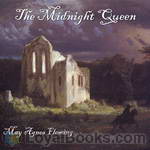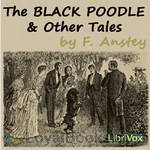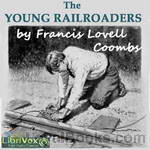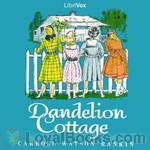|
Books Should Be Free Loyal Books Free Public Domain Audiobooks & eBook Downloads |
|
|
Books Should Be Free Loyal Books Free Public Domain Audiobooks & eBook Downloads |
|
Fiction |
|---|
|
Book type:
Sort by:
View by:
|
By: William J. Burns (1861-1932) | |
|---|---|
 The Crevice
The Crevice
The sudden death of wealthy and prominent financier, Pennington Lawton from an apparent heart attack, followed by the shocking revelation of his impending bankruptcy, leaves his sole heir and only daughter, Anita, distraught and nearly penniless. Nonetheless, she is determined to unravel the mystery surrounding her father’s death and the loss of his great fortune. To this end she engages the famous detective, Henry Blaine who is determined to unravel the tangled web of deception and restore both her father’s reputation and Anita’s inheritance... | |
By: May Agnes Fleming (1840-1880) | |
|---|---|
 The Midnight Queen
The Midnight Queen
May Agnes Fleming is renowned as Canada's first best-selling novelist. She wrote 42 novels, many of which have only been published posthumely.The Midnight Queen is set in London, in the year of the plague 1665. Sir Norman Kingsley visits the soothsayer "La Masque" who shows him the vision of a beautiful young lady. Falling madly in love with her, he is astonished to find her only a short time later and saves her from being buried alive. He takes her home to care for her, but while he fetches a doctor, she disappears. Sir Kingsley and his friend Ormistan embark on an adventure to solve the mystery of the young lady - will they ever find her again? | |
 Kate Danton, or, Captain Danton's Daughters A Novel
Kate Danton, or, Captain Danton's Daughters A Novel
| |
By: F. Anstey (1856-1934) | |
|---|---|
 The Brass Bottle
The Brass Bottle
What happens when a not-so-lucky man happens upon a brass bottle and releases the djinni caught within? Misunderstanding, culture shock, hilarity, among other things. Will the well-intentioned djinni help his new master? Or will he make things even worse? | |
 Vice Versa
Vice Versa
Set in Victorian times, the novel concerns business man Paul Bultitude and his son Dick. Dick is about to leave home for a boarding school which is ruled by the cane wielding headmaster Dr. Grimstone. Bultitude, seeing his son's fear of going to the school, foolishly says that schooldays are the best years of a boy's life, and how he wished that he was the one so doing. At this point, thanks to a handy magic stone brought by an uncle from India which grants the possessor one wish, they are now on even terms... | |
By: Anstey, F. (1856-1934) | |
|---|---|
 The Black Poodle and Other Tales
The Black Poodle and Other Tales
This is a collection of ten humorous short stories | |
By: F. Anstey (1856-1934) | |
|---|---|
 Baboo Jabberjee, B.A.
Baboo Jabberjee, B.A.
Another delightful example of an English writer poking fun at his countrymen, or maybe all races' reactions to someone from a diferent background. A series of adventures of a well educated foreigner in London which originally appeared weekly in Punch, sometimes with illustrations, dealing with the difficulties of fully understanding a different culture. The hero's perfect English reminds one of a quote from "My Fair Lady" ..."His English is too good, he said, "that clearly indicates that he is Foreign. Whereas other people are instructed in their native language English people aren't." | |
By: Frank Norris (1870-1902) | |
|---|---|
 McTeague
McTeague
McTeague is a simple dentist who becomes infatuated with Trina, the cousin of his friend Marcus. Trina then buys a winning lottery ticket worth $5,000, and McTeague announces his plans to marry her. But their marriage quickly falls apart as greed consumes them both, and Marcus' jealousy toward McTeague boils over. | |
 The Octopus
The Octopus
Frank Norris based his 1901 novel The Octopus (A Story of California) on the Mussel Slough Tragedy of 1880, a bloody conflict between ranchers and agents of the Southern Pacific Railroad. The central issue was over the ownership of the ranches, which the farmers had leased from the railroad nearly ten years earlier with intentions of eventually purchasing the land. Although originally priced at $2.50 to $5 per acre, the railroad eventually opened the land for sale at prices adjusted for land improvements; the railroad’s attempts to take possession of the land led the ranchers to defend themselves as depicted in the book. | |
 Blix
Blix
| |
 Moran of the Lady Letty
Moran of the Lady Letty
| |
By: William John Locke (1863-1930) | |
|---|---|
 The Red Planet
The Red Planet
Set during WWI in England, The Red Planet is a rich tale about the life in a little English town from the point of view of Major Duncan Meredyth, a disabled veteran of the Boer Wars. As he struggles to keep his life and the lives of those he cares for in harmony, he must also shelter a dark secret regarding one of the village's favorite sons.The Red Planet was the third bestselling novel in the United States for 1917. | |
By: Prosper Mérimée (1803-1870) | |
|---|---|
 Colomba
Colomba
| |
By: Francis Lovell Coombs | |
|---|---|
 The Young Railroaders
The Young Railroaders
While aimed at youths, this series of tales of the just-opening West makes a rollicking good story for adults, too. Three teen-age boys, trained as telegraphers, manage to get themselves in and out of a wide variety of harrowing circumstances. Using their knowledge of Morse code, the science of telegraphs, and the operation of railroads, the boys stir in native resourcefulness, quick-thinking, and when the occasion demands it, raw courage – to effect rescues, thwart thieves, and solve mysteries. If Tom Swift had lived in the nineteenth century, he could not have had more exciting escapades! | |
By: Michael Shaara (1928-1988) | |
|---|---|
 Conquest Over Time
Conquest Over Time
Pat Travis, a spacer renowned for his luck, is suddenly quite out of it. His job is to beat his competitors to sign newly-Contacted human races to commercial contracts...But what can he do when he finds he's on a planet that consults astrology for literally every major decision - and he has arrived on one of the worst-aspected days in history?Michael Shaara, later to write the Pulitzer-winning novel "The Killer Angels", wrote this story for Fantastic Universe in 1956. | |
By: George Gissing | |
|---|---|
 New Grub Street
New Grub Street
The story deals with the literary world that Gissing himself had experienced. Its title refers to the London street, Grub Street, which in the 18th century became synomynous with hack literature; as an institution, Grub Street itself no longer existed in Gissing’s time. Its two central characters are a sharply contrasted pair of writers:Edwin Reardon, a novelist of some talent but limited commercial prospects, and a shy, cerebral man; and Jasper Milvain, a young journalist, hard-working and capable of generosity, but cynical and unscrupulous about writing and its purpose in the modern (i.e. late Victorian) world. | |
 In the Year of Jubilee
In the Year of Jubilee
The Jubilee marks the fiftieth year of the reign of Queen Victoria. Dickensian in its sweeping scope of London life, Jubilee depicts the harsh and disreputable conditions of lower-middle class life at the end of the 19th century. (Introduction by S. Kovalchik) | |
 The Odd Women
The Odd Women
George Gissing's 1893 novel takes on the 19th century "Woman Question" by looking at themes of feminism, marriage, and love. The novel raises these issues through the lives of several contrasting women: Mary Barfoot, a feminist philanthropist who helps train women for careers; her close friend Rhoda Nunn, who believes marriage is a disastrous choice for women; and Monica Madden, who starts out as one of their protegees but chooses to marry a seemingly kind older man. As Monica experiences the challenges of married life, Rhoda finds herself drawn to Mary's cousin, the charming but apparently profligate Everard. | |
 Nether World
Nether World
This sad social novel revolves around the problematic issue of money. Michael returns from Australia to London a rich man. However, he hides this fact from everybody and spends money only on the things he really needs. He contemplates leaving his money to his granddaughter Jane, under the condition that she donate at least most of it to charity. However, Jane is not sure she can do it. This novel tells much about working class life in 19th century London. | |
 Born in Exile
Born in Exile
| |
 Eve's Ransom
Eve's Ransom
| |
 The Whirlpool
The Whirlpool
| |
 Unclassed
Unclassed
The Unclassed tells the story of two friends who are aspiring authors living in London in the late 19th century. Both of them fall in love. Both believe in social change but do not know how to bring it about. Both are sceptical about the values of their times. Both want respectability more then they would admit. This book, unlike many others of it's time, tells about working women, and includes honest descriptions of the slums of London. | |
 Demos: A Story of English Socialism
Demos: A Story of English Socialism
"Richard Mutimer is delighted to inherit a large fortune. As a socialist, he means to use it well: he will open a factory in which workers would be treated well, he will advance his party's causes through his own wealth... At least, so he thinks. But reality may be far different. This novel raises more questions than answers. How much should money play in the marriage market, or can love have a prominent place? Can a man who gained power remain a socialist? This book is not only about political unrest... | |
 Life's Morning
Life's Morning
This is the story of a poor young lady Emily Hood who while working as a governess falls in love with Wilfrid Athel the son of her employer. They become engaged, however things do not run smoothly after a visit home to her parents and Emily has to make a heartbreaking choice. | |
 Denzil Quarrier
Denzil Quarrier
| |
 Veranilda
Veranilda
| |
By: Robert Herrick (1868-1938) | |
|---|---|
 One Woman's Life
One Woman's Life
| |
 Clark's Field
Clark's Field
| |
 The Man Who Wins
The Man Who Wins
| |
By: Carroll Watson Rankin (1864-1945) | |
|---|---|
 Dandelion Cottage
Dandelion Cottage
Carroll Watson Rankin's best known novel is Dandelion Cottage, published in 1904 by Henry Holt and Company. She first wrote the story serially for her own children. Considered a regional classic in the midwest, it tells of four young girls who negotiate the use of a derelict cottage as a playhouse by pulling dandelions for the owner, prosperous Mr. Black. The real life model for Mr. Black is generally acknowledged to be Marquette businessman and philanthropist, Peter White. The original Dandelion Cottage is located at 440 East Arch and is privately owned. | |
 The Cinder Pond
The Cinder Pond
Years ago, a manufacturer built a great dock, jutting out from and then turning parallel to the shore of a northern Michigan town. The factory was abandoned, and following the habits of small towns, the space between the dock and the shore became "The Cinder Pond." Jean started life in the colony of squatters that came to live in the shanties on the dock, but fortune, heroism, and a mystery combine to change her fortunes and those of her friends near the Cinder Pond. (Advertising material from the publisher, 1915) More than one girl who reads this story will envy Jeanne her queer little home out on the end of the old dock in Lake Superior... | |